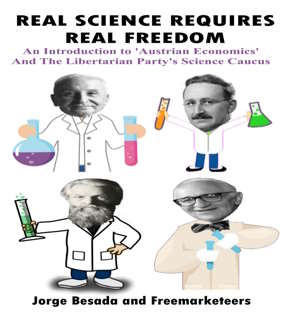
Mullis is widely known for winning the Nobel Prize in Chemistry (1993) for his role in the invention of the polymerase chain reaction (PCR) technique. When asked to write a paper about HIV virus being the cause of AIDS he realized no sound research had been done to make such a claim. In his autobiography he writes:
“The CDC has defined AIDS as one of more than thirty diseases accompanied by a positive result on a test that detects antibodies to HIV. But those same diseases are not defined as AIDS cases when the antibodies are not detected. If an HIV-positive woman develops uterine cancer, for example, she is considered to have AIDS. If she is not HIV-positive, she simply has uterine cancer. An HIV-positive man with tuberculosis has AIDS; if he tests negative he simply has tuberculosis. If he lives in Kenya or Colombia, where the test for HIV antibodies is too expensive, he is simply presumed to have the antibodies and therefore AIDS, and therefore he can be treated in the World Health Organization’s clinic. It’s the only medical help available in some places. And it’s free, because the countries that support the WHO are worried about AIDS. From the point of view of spreading medical facilities into areas where poor people live, AIDS has been a boon. We don’t poison them with AZT like we do our own people because it’s too expensive. We supply dressings for the machete cut on their left knee and call it AIDS…
In 1634 Galileo was sentenced to house arrest for the last eight years of his life for writing that the Earth is not the center of the universe but rather moves around the sun. Because he insisted that scientific statements should not be a matter of religious faith, he was accused of heresy. Years from now, people looking back at us will find our acceptance of the HIV theory of AIDS as silly as we find the leaders who excommunicated Galileo. Science as it is practiced today in the world is largely not science at all. What people call science is probably very similar to what was called science in 1634. Galileo was told to recant his beliefs or be excommunicated. People who refuse to accept the commandments of the AIDS establishment are basically told the same thing. “If you don’t accept what we say, you’re out.”
It has been disappointing that so many scientists have absolutely refused to examine the available evidence in a neutral, dispassionate way. Several respected scientific journals have refused to print a statement issued by the Group for the Scientific Reappraisal of the HIV-AIDS Hypothesis simply requesting “a thorough reappraisal of the existing evidence for and against this hypothesis.”
I spoke publicly about this issue for the first time at a meeting of the American Association for Clinical Chemists in San Diego. I knew I would be among friends there. It was a small part of a much longer speech—at most I spoke for fifteen minutes about AIDS. I told the audience how my inability to find a simple reference had sparked my curiosity.
The more I learned, the more outspoken I became. As a responsible scientist convinced that people were being killed by useless drugs, I could not remain silent.
The responses I received from my colleagues ranged from moderate acceptance to outright venom. When I was invited to speak about PCR at the European Federation of Clinical Investigation in Toledo, Spain, I told them that I would like to speak about HIV and AIDS instead. I don’t think they understood exactly what they were getting into when they agreed. Halfway through my speech, the president of the society cut me off. He suggested I answer some questions from the audience. I thought it was incredibly rude and totally out of line that he cut me off, but what the hell, I would answer questions. He opened the floor to questions and then decided that he would ask the first one. Did I understand that I was being irresponsible? That people who listened to me might stop using condoms? I replied that fairly reliable statistics from the CDC showed that in the United States, at least, the number of reported cases of every known venereal disease was increasing, meaning people were not using condoms, while using the initial definition of AIDS, the number of reported cases of AIDS was decreasing. So, no. I didn’t understand that I was being irresponsible. He decided that that was enough questions and ended the meeting abruptly.”

